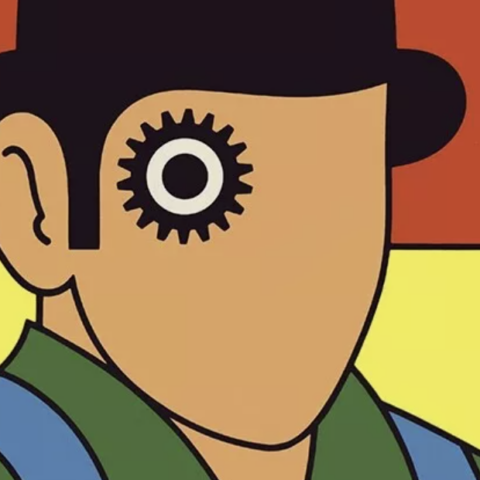Literally Romantic, Book It With Love
By Audrey Annastasya
The birth of mass production came to be and introduced America to steamships, automobiles, and aeroplanes. Amidst this Revolution (1865-1900), was a time of change in America, signalled by a shift from a farming to a manufacturing economy. Despite the financial stability, it brought about to the country, the times of the Industrial Revolution were also synonymous with the lack of individualism and fantasy. But there was a counterpoint, one that travelled from Europe albeit taking a few years to get to America took this movement and made it their own. Find out more in Literally Romantic here.
Originating in Europe through the arts, the Romantic movement was a revolt against 18th-century rationalism. The Romantics put an extra emphasis on emotional reactions to nature and the self. While experiencing massive socioeconomic change during the Industrial Revolution, American authors then adopted the Romantic movement most significantly through writing. This literary movement explored and celebrated the common man, nature, and the unknown. This was when literature became a source of hope and entertainment for the people.
Here are seven Romantic poems or novels by American writers from the Industrial Revolution that are worth exploring:
“Hope” is the thing with feathers
In “‘Hope’ is the thing with feathers”, Dickinson portrays the Romantic movement through themes of escapism and hope. Dickinson’s childhood during the Romantic period was also reflected throughout the poem, bleeding dark and barren undertones of the Industrial Revolution. In “‘Hope’ is the thing with feathers”, Dickinson says she wants to escape, and with the hope she does.

Emily Dickinson’s “‘Hope’ is the thing with feathers” (1861)
Song of Myself
The Romantic movement is potent in Walt Whitman’s poem “Song of Myself”. Greatly inspired by another highly coveted American Romantic literary figure, Ralph Waldo Emerson, this free verse poem showcases the many characteristics of the Romantic movement, including the celebration of nature and self.


Walt Whitman’s “Song of Myself” (1819-1892)
The Murders in the Rue Morgue
Edgar Allan Poe’s The Murders in the Rue Morgue stands to become one of the first ever written pieces of literary crime fiction. The Romantic movement influenced Poe in unique ways, constantly challenging the genre through mystery, thrills, and fear of the unknown.

Edgar Allan Poe’s The Murders in the Rue Morgue (1841)
Little Women
Louisa May Alcott’s Little Women highlights not only one but four women exploring growing pains and adulthood. The Romantic influence on Alcott’s Little Women is not in its submission to the movement, but its subversiveness. After all, the novel is most known for its objection to domesticity and structure.
Greta Gerwig’s Little Women film adaptation, 2019

Louisa May Alcott’s Little Women (1968)
The Scarlet Letter
Nathaniel Hawthorne’s novel The Scarlet Letter is the epitome of the Dark Romantic. Set in Puritan Boston, Massachusetts, The Scarlet Letter portrays the story of Hester Prynne, who conceives a daughter outside of marriage. The Scarlet Letter “A” is Hester’s punishment for her sins.

Nathaniel Hawthorne’s The Scarlet Letter (1850)
Moby Dick, or The Whale
In Herman Melville’s Moby-Dick or the Whale, sailor Ishmael recounts his adventure sailing the ship Pequod under the command of Captain Ahab. Melville dedicated this novel to fellow American Romanticism author, Nathaniel Hawthorne. Similar to Hawthorne’s The Scarlet Letter, Moby-Dick meditates on the human condition and the power of nature.
John Huston’s Moby-Dick film adaptation, 1965

Herman Melville’s Moby Dick or The Whale (1851)
Walden
In David Henry Thoreau’s Walden, nature takes centre stage. Walden is Thoreau’s firsthand account of living solo in the woods. In this novel, Thoreau embraces the wilderness of nature and man’s obligation as its caretaker in this novel. Most known for his environmentalist beliefs, Thoreau also contemplates conformity and the false sense of comfort it brings about.

David Henry Thoreau’s Walden (1854)
If you enjoyed reading Literally Romantic why not read Espionage
.Cent London, Be inspired; Get involved



